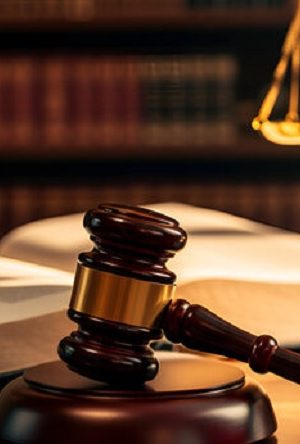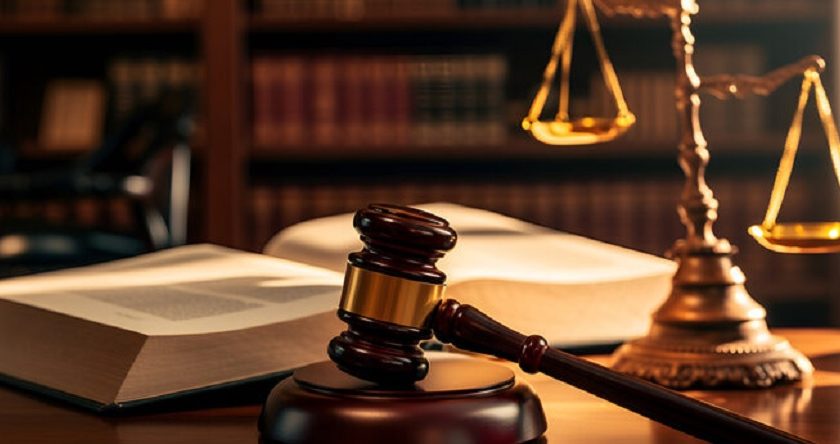Introduction: The Invisible Hand of Civilized Life
Law is the quiet yet commanding force that shapes the fabric of human civilization. Often overlooked in the bustle of daily life, it nonetheless influences everything from the contracts we sign and the taxes we pay to the rights we cherish and the responsibilities we bear. It is not merely a collection of rules imposed by authority—it is a manifestation of society’s evolving ideals, aspirations, and collective sense of justice. At its finest, law is both a shield and a compass, offering protection while guiding moral progress.
Understanding the role of law demands more than legal literacy—it requires an appreciation for the philosophy, history, and social implications woven into every statute and court ruling. In this article, we explore the depth and breadth of law, tracing its historical roots, analyzing its societal functions, and addressing the challenges it faces in a rapidly transforming world.
The Foundations of Legal Thought
Historical Origins
-
Ancient Civilizations: The earliest codified laws—such as the Babylonian Code of Hammurabi or the Mosaic Law in the Hebrew Bible—were deeply intertwined with religion and social hierarchy. These early systems aimed to enforce order through clear, albeit often harsh, prescriptions.
-
Greek and Roman Influence: The Greeks introduced concepts of citizenship and participatory governance, while Roman law developed principles that still underpin many modern legal systems—particularly in civil law countries.
-
English Common Law: Developed during the medieval period, common law is based on court precedents and judicial decisions. It remains foundational in countries like the United States, Canada, and the UK.
Legal Theories
-
Natural Law: Proposes that laws should reflect universal moral principles discernible through human reason. Thinkers like Cicero and Thomas Aquinas viewed natural law as superior to man-made legislation.
-
Legal Positivism: Contrasts sharply with natural law by asserting that law is valid when enacted by legitimate authority, regardless of its moral content.
-
Legal Realism and Critical Theories: These schools argue that law is not neutral and often reflects the biases of those in power, calling for a more contextual and pragmatic understanding.
The Core Functions of Law
Maintaining Order and Predictability
Law provides a structured framework that helps maintain public order. By setting expectations for behavior, it discourages wrongdoing and provides mechanisms for addressing transgressions.
-
Penal codes establish consequences for criminal behavior
-
Civil procedures offer pathways for resolving disputes without violence
-
Regulatory laws ensure industries operate within safe and ethical standards
Protecting Individual Rights and Freedoms
Legal systems are the custodians of individual liberties. The right to free speech, to due process, to property, to equality—these are all upheld and enforced through legal institutions.
-
Constitutional laws enshrine fundamental rights
-
Anti-discrimination statutes promote equality across race, gender, and religion
-
Legal remedies offer recourse for violations of civil liberties
Facilitating Social and Economic Transactions
Laws make it possible for individuals and businesses to engage in complex economic activities with confidence.
-
Contract law ensures agreements are honored
-
Property law defines ownership and transfers
-
Corporate and financial laws regulate commercial enterprises and markets
Resolving Conflicts
One of the primary roles of the legal system is to serve as an impartial arbiter in disputes.
-
Courts offer structured procedures for hearing and resolving cases
-
Alternative dispute resolution mechanisms (like mediation and arbitration) reduce burdens on judicial systems
-
Fair adjudication preserves public trust in justice
The Machinery of Modern Legal Systems
Branches of Law
-
Criminal Law: Focuses on acts deemed harmful to society and prescribes punishments
-
Civil Law: Deals with disputes between private parties over rights and obligations
-
Constitutional Law: Defines the structure of the state and guarantees civil liberties
-
Administrative Law: Regulates actions of government agencies
-
International Law: Governs relations between nations through treaties and conventions
Sources of Law
-
Statutory Law: Laws enacted by legislative bodies
-
Common Law: Derived from judicial decisions and precedents
-
Customary Law: Based on long-standing societal practices
-
Regulatory Law: Rules created by government agencies with delegated authority
The Legal Profession: More Than Just Black Robes
Legal practitioners are often seen as the face of the law, but their roles are varied and far-reaching.
Roles and Responsibilities
-
Judges: Interpret laws, ensure fair trials, and create precedents that shape future decisions
-
Lawyers: Represent clients, offer legal advice, draft contracts, and advocate for justice
-
Academics and Scholars: Analyze and critique legal systems, driving theoretical and practical reforms
Ethical Duties
Legal professionals are bound by codes of conduct emphasizing integrity, confidentiality, and the pursuit of justice. Their duty is not merely to win cases, but to uphold the rule of law itself.
Contemporary Challenges in the Legal Landscape
Accessibility and Affordability
Justice remains elusive for many due to high legal fees, lengthy procedures, and complex jargon. Bridging the justice gap is one of the foremost concerns of modern legal reform.
-
Expanding legal aid programs
-
Simplifying legal language
-
Promoting alternative dispute resolution
Technology and the Law
Digital transformation presents both opportunities and challenges.
-
Artificial Intelligence: Raises questions about liability, privacy, and due process in automated decision-making
-
Cybercrime: Existing laws struggle to keep pace with rapidly evolving digital threats
-
Virtual Courts: Improve accessibility but pose concerns over transparency and procedural fairness
Globalization and Jurisdiction
With the world becoming increasingly interconnected, legal systems must adapt to cross-border challenges.
-
Harmonizing international standards in trade, human rights, and environmental protection
-
Managing conflicts between national sovereignty and global governance
-
Developing effective international legal institutions
Toward a More Equitable Future
For law to remain a force for good, it must not only reflect current realities but anticipate future needs. A just legal system must be dynamic—capable of reforming outdated practices and expanding protections as society evolves.
Reforms to Consider
-
Streamlining procedures to reduce delays
-
Investing in public legal education
-
Encouraging community-based legal services
-
Enhancing diversity within the judiciary and legal academia
Conclusion: Law as a Living Institution
Law is not a static entity etched in stone—it is a living institution, evolving in tandem with the society it serves. At its best, the law embodies fairness, reason, and humanity. At its worst, it can entrench inequality and suppress dissent. The responsibility lies not just with lawmakers and legal professionals, but with all of us, to ensure that the law remains a servant of justice, not a tool of oppression.
To respect the law is to respect the collective endeavor of humankind to live peacefully, equitably, and honorably. And to engage with it is to take part in shaping the world we wish to inhabit.




